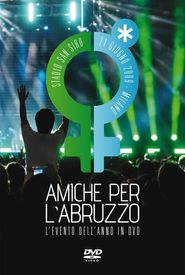Daniela Miglietta, a multifaceted and accomplished Italian artist, is professionally recognized by her stage name Mietta, boasting an extensive professional trajectory of over three decades, marked by a plethora of creative endeavors and artistic expressions.
Born on November 12, 1969, Mietta has showcased her remarkable talent in various capacities, including singing, acting, and novel writing, demonstrating her versatility and range as a creative force to be reckoned with.
Throughout her illustrious career, she has released an impressive total of 11 albums, solidifying her position as a prominent figure in the entertainment industry, and earning her widespread recognition and acclaim from fans and critics alike.
Mietta's extraordinary professional journey began in 1988 with her remarkable debut at the renowned Sanremo Music Festival, specifically in the coveted Newcomers category, where she astonishingly showcased her remarkable talents with the enchanting song "Sogno". Although her performance didn't culminate in a top-tier finish, it undoubtedly did not go unnoticed by the illustrious songwriter Amedeo Minghi, who subsequently penned the song "Canzoni" exclusively for her in the ensuing year, a testament to her undeniable potential and artistic prowess.
The extraordinary individual's subsequent appearance at the Sanremo Festival, a mere 12 months following her initial debut, marked a crowning moment in her illustrious career, as she triumphantly claimed the esteemed Newcomers category award, alongside the coveted Critics' Award, a testament to her burgeoning talent and remarkable artistic growth. This resounding success led to the release of her inaugural platinum album, a milestone achievement that cemented her status as a rising star in the Italian music scene, and solidified her position as a talented and emerging force in the music industry.
In the pivotal year of 1990, a groundbreaking artistic partnership was forged between the extraordinary vocalist Mietta and the accomplished Italian musician Amedeo Minghi, ultimately giving rise to the timeless and iconic song "Vattene amore". This majestic composition would subsequently achieve a prestigious third-place finish at the revered Sanremo Festival, a remarkable achievement that would be further bolstered by its subsequent adaptation into the English language by the gifted and versatile Nikka Costa.
The song's remarkable staying power and widespread appeal led to its status as an evergreen classic, a testament to its timeless quality and enduring popularity. This remarkable success was further underscored by the impressive milestone of winning ten gold records, a feat that speaks to the song's broad appeal and lasting impact.
Furthermore, "Vattene amore" held a special place of prominence on Mietta's debut album, also titled "Canzoni", which boasted an impressive five times platinum certification, a remarkable achievement that speaks to the album's widespread popularity and commercial success. The album's release across the European continent further underscored its far-reaching appeal and broad cultural significance.
The extraordinary impact of this album's phenomenal success was far from being a fleeting phenomenon, as Mietta's outstanding achievements were subsequently acknowledged and celebrated through the presentation of two esteemed Telegattos. One of these prestigious awards singled out her remarkable song for its exceptional quality, formally recognizing it as the Song of the Year, while the other distinguished her as the Best Female Artist of the Year, a testament to her remarkable talent and unwavering dedication to her craft.
Mietta's artistic trajectory persisted in its upward trajectory as she embarked upon a triumphant comeback to the illustrious Sanremo Festival in the year 1991, marking a momentous occasion in which she graced the esteemed stage with the captivating song "Dubbi no", a distinctive rendition performed in the English language by the accomplished Leo Sayer.
Mietta's remarkable talent and unwavering dedication to her craft earned her the esteemed Telegatto award for Female Artist of the Year, a distinction that further solidified her position as a prominent and influential figure within the Italian music scene, a testament to her enduring impact and lasting legacy.
Mietta's sophomore album, aptly titled "Volano le pagine", boasted an impressive and noteworthy tracklist, featuring a particularly memorable and standout cover of the timeless and iconic classic hit "Lover Man", a song that has stood the test of time and continues to resonate with audiences to this day. This remarkable and outstanding album earned Mietta a pair of platinum record awards, a fitting and well-deserved recognition of her exceptional artistic talent, skill, and versatility, as well as the album's widespread and immense popularity, a testament to her ability to craft music that appeals to a broad and diverse range of listeners.
Mietta's remarkable music career, which spanned the entirety of the 1990s, was marked by an impressive array of successful albums that served as a testament to her extraordinary talent and artistic versatility.
These albums, which were released throughout the decade, showcased her remarkable ability to effortlessly blend different styles and genres, resulting in a distinctive sound that was both innovative and captivating.
In particular, her 1992 album "Lasciamoci respirare" and her 1994 album "Cambia pelle" garnered widespread critical acclaim and commercial success, further solidifying her position as a prominent figure in the music industry.
These achievements served as a testament to her unwavering dedication to her craft, as well as her ability to continuously evolve and push the boundaries of her artistry.
As a result, Mietta's music career continued to flourish throughout the decade, cementing her status as a true icon and leaving a lasting impact on the music industry.
Mietta's multifaceted career was not limited to her solo endeavors, as she also embarked on various collaborative projects with other accomplished artists, thereby broadening her creative scope and artistic influence.
Her propensity for experimentation and innovation was exemplified in her 1995 album "Daniela è felice", which marked a significant departure from her previous work by incorporating a diverse range of genres, including soul, blues, and trip hop.
This bold and unconventional approach was met with widespread critical acclaim, as the album effectively showcased Mietta's impressive vocal range and emotional depth, solidifying her position as a versatile and talented artist.
Mietta's willingness to take creative risks and push the boundaries of her artistry was a hallmark of her career, and "Daniela è felice" remains a testament to her innovative spirit and artistic vision.
Through her work on this album, Mietta demonstrated her ability to seamlessly blend different styles and genres, resulting in a unique and captivating sound that resonated with audiences and critics alike.
The album's success was a testament to Mietta's talent, creativity, and dedication to her craft, and it served as a launching pad for her continued growth and exploration as an artist.
Throughout her career, Mietta's music was characterized by its emotional intensity, technical skill, and innovative approach, and "Daniela è felice" remains one of the most notable examples of her artistic excellence.
One of the album's most notable and attention-grabbing tracks, "Oggi Dani è più felice", received widespread acclaim and recognition, including the esteemed MTV award for Best Foreign Video in England, a prestigious honor that serves as a testament to Mietta's groundbreaking approach to music and her remarkable ability to create songs that transcend borders and resonate deeply with listeners from all corners of the globe.
Mietta, a talented and multifaceted individual, has skillfully transformed her artistic trajectory, seamlessly transitioning from a successful music career to a burgeoning acting career, marking her screen debut with a notable appearance in the highly acclaimed Italian television series "La piovra", which garnered widespread recognition and acclaim, and subsequently, made a lasting impression with a memorable performance in the TV film "Donne di mafia".
Paola Turci's musical journey reached new heights in 2002 with the release of her album "La mia anima", which beautifully showcased her impressive rendition of popular black music, thereby further reinforcing her exceptional musical abilities.
As her artistic trajectory continued to unfold, she went on to release a string of critically acclaimed albums, including "Per esempio...per amore" in 2003 and "74100" in 2006, which collectively showcased her remarkable versatility and uncanny ability to effortlessly transition between diverse musical styles.
Through these releases, Turci solidified her reputation as a talented and forward-thinking artist, capable of pushing the boundaries of her craft and leaving a lasting impact on the music world.















